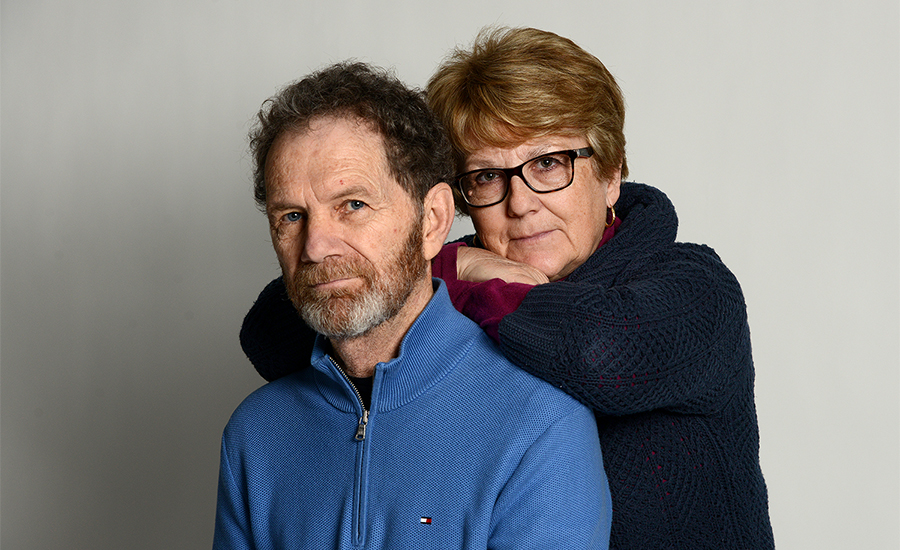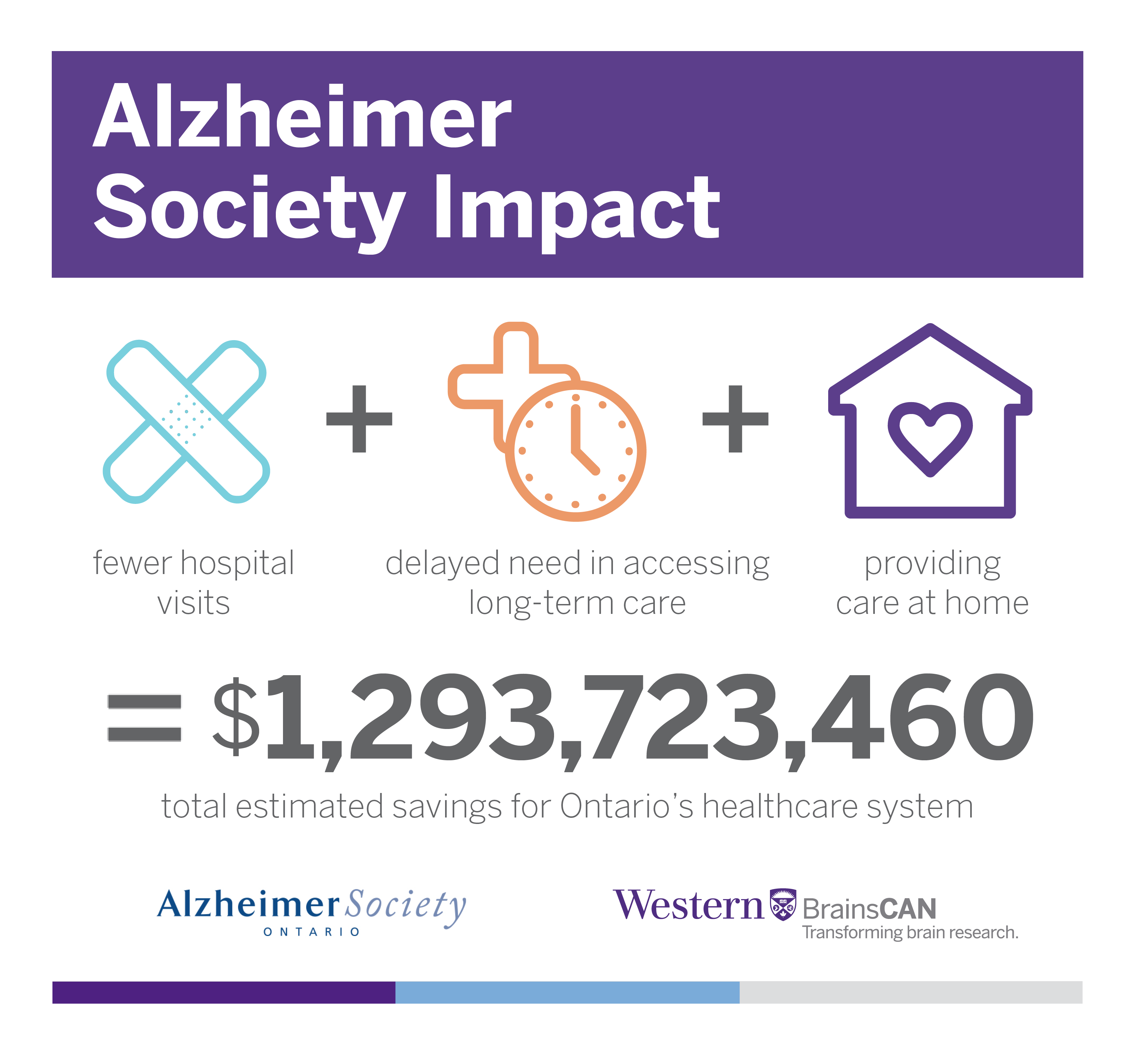Contact Information
Hassam Ansari
Communications Officer, BrainsCAN
Western University
hassam.ansari@uwo.ca
BrainsCAN survey shows Alzheimer Society support leads to $1.3B in health-care savings
New province-wide report provides real-life insights from those living with dementia and their care partners
January 27, 2022 - BrainsCAN Communications

Deb and Bruce Weber (photo supplied by the Alzheimer Society Southwest Partners)
A new survey report from Western University’s BrainsCAN, in partnership with the Alzheimer Society of Ontario, found programs and services provided by the province’s 27 Societies deliver savings close to $1.3 billion for Ontario’s health-care system.
The savings are generated from the Alzheimer Society’s support for care partners and individuals living with dementia, resulting in:
- an average of 2.11 fewer hospital visits per year for care partners who reported avoiding crises because of Alzheimer Society support.
- a delayed need in accessing long-term care by an average of 1.38 years, reported by care partners who indicated Alzheimer Society support postponed their decision to access assisted living or long-term care.
- more confidence providing care at home, with 28.4 per cent of care partners providing care at home noting they would have likely accessed long-term care at the time of taking the survey if it had not been for the Alzheimer Society’s support.
More than 76 per cent of individuals living with dementia and nearly 80 per cent of care partners were able to live or provide care at home and delay the need for long-term care service as a result of involvement by the Alzheimer Society, according to the survey.

The importance of providing care at home is something Deb Weber knows about first-hand.
Deb’s husband Bruce, diagnosed with early-onset Alzheimer’s in 2011 at the age of 61, was happiest being at home in familiar surroundings.
“At home, he was part of our family.”
Originally set to enter long-term care in 2016, the Weber family was able to keep Bruce home until 2019, thanks to support from the local Alzheimer Society.
“Bruce was on the list for long-term care for several years. I turned it down twice because we had our Alzheimer Society volunteer companion,” said Deb, Bruce’s primary care partner. “Our volunteer was very important in our care plan, allowing me some reprieve as his caregiver. Without that volunteer, we would not have gotten through the last three years of Bruce living at home.”
The survey also provided insights on care partners’ experiences dealing with crises, with a third of respondents saying the Society has helped them avoid incidents that would have led to a hospital visit. And for those living with dementia who did require a hospital stay, support from the Alzheimer Society gave 35 per cent of care partners the confidence in providing care after hospitalization.
“The survey highlighted the critical role Alzheimer Societies play in the dementia journey,” said Lisa Saksida, co-scientific director for BrainsCAN. “Our research expertise, supported by a federally funded research grant from the Canada First Research Excellence Fund, allows us to partner with community organizations like the Alzheimer Society to understand the impact of their work while helping those with neurodegenerative conditions.”
More than 250,000 Ontarians live with dementia today, a number expected to increase as the province’s population ages. For an inundated health-care system, assistance provided by the Alzheimer Society is one way to address this increasing demand. Offering information as well as emotional assistance and care at home can help people participate in their community for as long as possible.
“The Alzheimer Society is grateful for the partnership with BrainsCAN and Western,” said Cathy Barrick, chief executive officer of the Alzheimer Society of Ontario. “Through this partnership, we have been able to learn more about the impact our services have on people living with dementia and their care partners. These insights allow us to continue to focus on improving our service delivery to ensure we are offering the highest quality programs and services.”
For Deb Weber, the Alzheimer Society was invaluable.
“They provided the social and emotional counselling we needed, the education was powerful, and they were a refuge on the stormy days of the disease,” said Deb, who is now on the board of directors for the Alzheimer Society Southwest Partners. “I can’t imagine where I would have been if I did not have help from the Alzheimer Society.”
For more information about the Alzheimer Society impact survey, please download the PDF here.
For more information about Deb and Bruce’s experience with the Alzheimer Society Southwest Partners’ volunteer companion program, visit https://www.youtube.com/watch?v=g_wikxwLGxA







